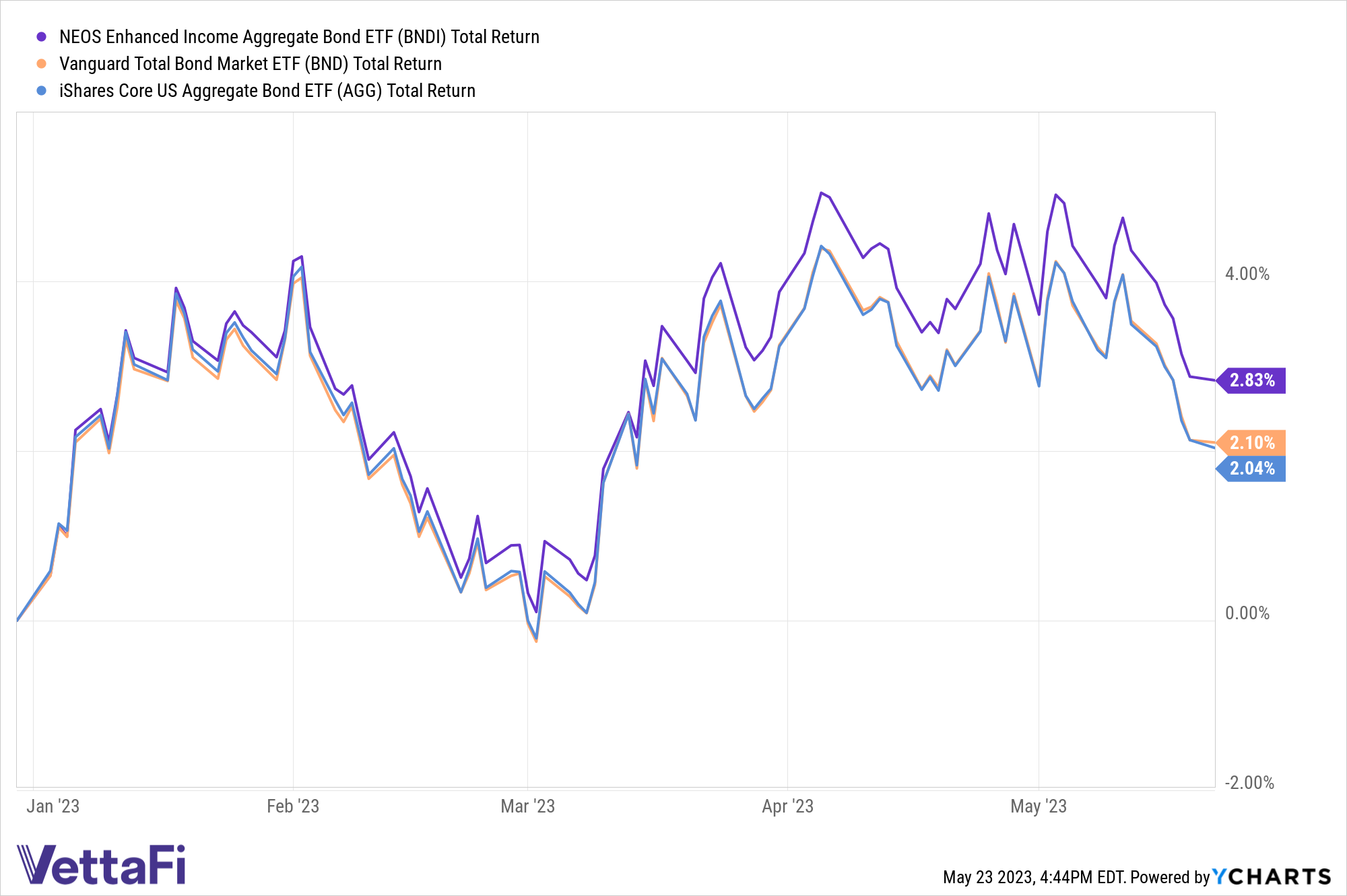Money is flooding back into bonds this year after the challenging performance of last year. For those looking for income potential in bonds, the NEOS Enhanced Income Aggregate Bond ETF (BNDI) currently offers noteworthy total returns.
As of the end of April, over $61 billion in flows went into ETFs in U.S. fixed income. For comparison, just $6.5 billion went into U.S. equity ETFs. Yields in bonds remain appealing, particularly as rate risk potentially begins to subside.
BNDI is an actively managed ETF that seeks to offer enhanced monthly income distributions for investors. The fund invests across the broad U.S. Aggregate Bond Market while also implementing a tax-efficient options strategy that generates additional income.
The fund invests in the Vanguard Total Bond Market ETF (BND) and the iShares Core U.S. Aggregate Bond ETF (AGG). This provides broad exposure to the U.S. bond market.

BNDI is yielding higher total returns YTD than the broad bond market and the ETFs it tracks. It also currently has a distribution yield of 5.17% and a 30-day SEC yield of 2.04% as of 04/30/2023.
The income and capital gains that BNDI receives from its bond allocations are enhanced by the addition of monthly income from the fund’s put-option strategy on the S&P 500, which sells short puts while also buying long puts to protect against volatility.
Benefits Of the BNDI Options Strategy
The strategy may offer positive returns in both flat and rising equity markets. It may also generate positive returns in moderately-declining equity markets, as long as the premium from the puts bought and sold is greater than the cost to close out the positions. Additional benefits of an options-based strategy mean that BNDI may offer a lower correlation to certain risk factors. These include duration, credit, and inflation risk.
BNDI’s put options aren’t ETF options but S&P 500 index options, which are taxed favorably as Section 1256 Contracts under IRS rules. The IRS treats options held at the end of the year as if the investor had sold on the last market day of the year at fair market value. Most importantly, the IRS taxes any capital gains as 60% long-term and 40% short-term, no matter how long the fund held them.
This treatment can offer noteworthy tax advantages. In addition, the fund’s managers also may engage in tax-loss harvesting opportunities throughout the year on the put options.
BNDI currently has an expense ratio of 0.58%.
For more news, information, and analysis, visit the Tax-Efficient Income Channel.

